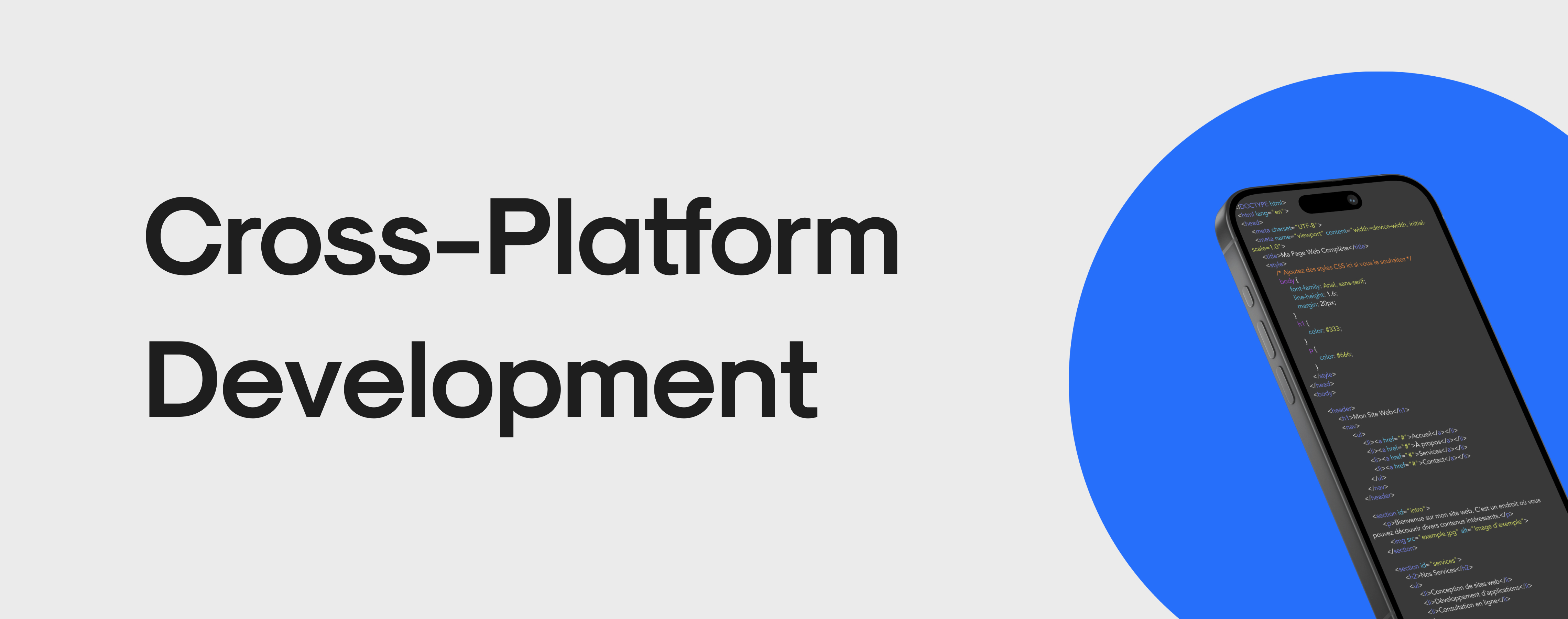How much does a hybrid app cost?
In today’s mobile world, hybrid apps are more popular than ever due to their flexibility and cost efficiency. These apps allow businesses to extend their reach across multiple platforms with just one development process. But how much does it cost to develop such a hybrid app? In this article, we highlight the various factors that influence the cost and provide business decision-makers with a detailed overview of the investments required for a successful hybrid app.
What you need to know:
- The development of a hybrid app starts at €12,000 or €75 per hour.
- Hybrid apps use a single codebase for iOS, Android, and other platforms.
- The Flutter hybrid framework enables efficient and cost-effective development processes.
- UI/UX design, API integration, and comprehensive testing are crucial for success.
- Deployment and review for app stores are included in the development process.
Why choose a hybrid app?
Opting for hybrid app development offers numerous advantages. By using a hybrid app framework like Flutter, businesses can deploy their applications across different operating systems like iOS and Android without maintaining separate codebases for each system. This not only leads to significant cost savings but also accelerates time-to-market.
Factors influencing the cost
The cost of developing a hybrid app can vary depending on the scope and complexity of the project. Factors affecting the cost include UI/UX design, the implementation of specific features, API integration, and app testing. An experienced developer or a specialized team working with the Flutter hybrid framework can efficiently create high-quality hybrid apps that work seamlessly on all devices and platforms.
Budgeting for the success of your hybrid app
To plan development costs realistically, companies should consider all aspects of the development process. This includes design, development, testing, and deployment. With a budget starting at €12,000, business decision-makers can establish a solid foundation for developing a successful hybrid app. The hourly rate of €75 also offers flexibility to adjust the project scope during the development phase.
Frameworks for cross-platform development: An overview
Choosing the right framework is crucial for the success of a hybrid app. There are a variety of frameworks for cross-platform development, each with its own strengths and use cases. Below, we introduce some of the leading frameworks commonly used in hybrid app development.
Flutter
Flutter, developed by Google, has quickly become one of the most popular frameworks for hybrid app development. It allows the creation of high-performance, visually appealing applications for iOS, Android, and the web from a single codebase. Dart, a programming language developed by Google, is the foundation of this framework. Flutter stands out with its fast development time, reactive performance, and hot reload feature, allowing developers to see changes instantly.
React Native
React Native, developed by Facebook, enables developers to create native apps for iOS and Android using JavaScript. It is especially popular among developers with prior experience using React for web applications. React Native offers access to native operating system components, leading to high performance and a native look and feel for apps.
Xamarin
Xamarin, a Microsoft product, enables the development of hybrid apps using C# and .NET. It integrates closely with the Visual Studio IDE and allows developers to share code for Android, iOS, and Windows. Xamarin has a strong community and offers access to a wide range of .NET libraries and tools for app development.
Apache Cordova (formerly PhoneGap)
Apache Cordova is an open-source framework that enables the development of hybrid apps using HTML5, CSS, and JavaScript. It utilizes webview components to wrap web applications into a native app shell that can be executed on various platforms. Cordova offers a wide range of plugins that provide access to device functions such as the camera, GPS, and sensors.
Quasar Framework
The Quasar Framework is a Vue.js framework that allows developers to simultaneously create responsive websites, PWAs (Progressive Web Apps), SSR (Server-Side Rendered) apps, mobile apps (via Cordova or Capacitor for iOS and Android), and Electron apps for desktop platforms. It is known for its fast development speed and high performance. Each of these frameworks offers unique advantages and can be selected depending on the specific requirements and goals of the project. Choosing the right framework is a crucial step in hybrid app development and can lay the foundation for the success of your app.
Pricing for hybrid app development
The costs for developing a hybrid app can vary greatly depending on factors such as the complexity of the app, desired features, design efforts, and the extent of third-party service integrations. Generally, the prices for developing hybrid apps that run on both Android and iOS start at €12,000 or €75 per hour for the work of specialized developers. This price range reflects the initial investment necessary to bring a basic but functional hybrid app to market.
In addition to hybrid app development costs, it’s worth noting that the prices for developing standalone Android or iOS apps are similarly structured, with projects usually starting at €10,000 or also €75 per hour. This underscores the cost advantage of hybrid app development, as companies can serve both platforms with a single codebase without having to invest twice. However, it should be noted that these costs are only indicative. Depending on the specific requirements and complexity of the project, the actual costs may be higher or lower.
A detailed cost breakdown and project plan from an experienced developer or development team can help provide a more accurate cost estimate. Additionally, ongoing maintenance, updates, and potential expansion costs may further impact the overall costs over time.
Conclusion
Investing in hybrid app development allows businesses to effectively reach their target audiences across different platforms while saving on costs and development time. By choosing an experienced development team and a powerful hybrid app framework like Flutter, business decision-makers can ensure that their app is not only functional but also user-friendly and visually appealing. The costs of a hybrid app are an investment in the future of your business and offer excellent value for money.
Image source: North IT Group



